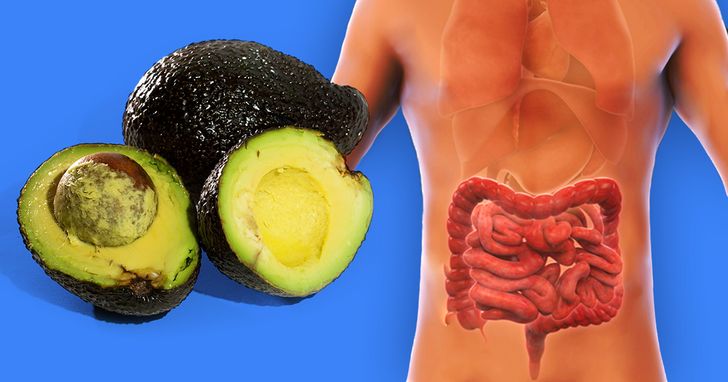Can an avocado a day keep your health at bay? What does the research have to say?
Native to the warmer regions of Mexico and Central America, avocados—originally referred to as aguacate or alligator pears—are fruits unlike any other. Avocados are characterized by a large central seed surrounded by a uniquely smooth and creamy green flesh that is encased by a rough outer skin. Botanically, they are actually berries! However, their nutritional profile does not reflect that of a berry. These exceptional fruits contain the highest amount of fat, calories and protein of any fruit. They also boast a fair share of fiber, potassium, magnesium, B vitamins (such as folate), vitamin E and carotenoids, among others.
It’s no wonder avocado consumption has increased dramatically worldwide. Not only are they packed full of nutrients, but the buttery, slightly nutty flavor is hard to resist. However, their high caloric and fat content may make you question if avocados are healthy to consume regularly. Better yet, do they impart any health benefits? Are they truly worth the extra bucks? To answer these questions and more, keep reading to learn what research has to say about consuming avocados every day.
You May Improve Your Gut Health

Cultivating a healthy gut is critical for your overall health and well-being. When it comes to laying a good foundation, avocados are filled with an impressive amount of dietary fiber—a nutrient linked to improved gut health. According to the USDA, one avocado contains around 13.5 grams of fiber, which is nearly half of the 2020-2025 Dietary Guidelines for Americans’ recommendation of 28 to 34 grams per day.
Meeting the recommended daily intake of dietary fiber plays a pivotal role in feeding and fueling the good bacteria in your gut. In turn, the beneficial microbes degrade and ferment the ingested fiber to produce short-chain fatty acids. “Short-chain fatty acids provide health to the gut cells and gut lining,” says JeJe Noval, Ph.D., M.S., RDN. “Many fiber-rich foods include prebiotic elements in them, like avocados. Therefore, consuming a variety of fiber-rich foods like avocados, berries and nuts, to name a few, work together with probiotic-rich foods like sauerkraut, kimchi and yogurt to produce health benefits.”
In fact, a 2021 study published in The Journal of Nutrition found that daily avocado consumption resulted in a greater abundance of fiber-fermenting bacteria, increased production of short-chain fatty acids and lower fecal bile acid concentrations. High bile acid concentrations are problematic because they can increase gut inflammation and lead to several conditions, including gallbladder issues, Noval explains. In addition, she says, “Decreasing fecal bile acid can decrease unexplained diarrhea in some individuals, which can lead to nutrient malabsorption if not treated in a timely manner.” Therefore, consuming avocados may promote healthy digestive function.
You May Maintain a Healthy Weight

Adding avocado to your meals may also benefit your weight management. Although the fat content of avocados makes them high in calories, a 2022 study published in the Journal of American Heart Association observed that people who ate one avocado per day for six months maintained a stable body weight. Therefore, avocado consumption did not contribute to weight gain.
Daily avocado consumption may actually prevent weight gain, per a 2019 study in Nutrients. In addition, a 2021 Journal of Nutrition study found that enjoying an avocado a day may help to reduce visceral fat among females.
The reason avocados are excellent for weight management is because of their fiber and monounsaturated fat content. Fiber has been shown to increase feelings of satiety, while monounsaturated fats (specifically oleic acid) can decrease fat storage when consumed in adequate amounts, according to a 2021 review in Nutrients.
You May Reduce Your Heart Disease Risk
According to the Centers for Disease Control and Prevention, heart disease remains the leading cause of death in the United States among men, women and people of all racial and ethnic backgrounds. In order to reduce the risk of developing heart disease, it is vital to adopt a diet rich in potassium, magnesium, fiber, folate, monounsaturated fats, polyphenols and antioxidants. Each one of these heart-healthy nutrients is perfectly packaged inside a ripe avocado.
Due to their high nutrient density, a 2022 study in the Journal of the American Heart Association found that consuming avocados is associated with a 16% to 22% decreased risk of cardiovascular disease and coronary heart disease. The researchers noted that swapping half a serving of butter, margarine, egg, cheese, yogurt or processed meat with the same amount of avocado significantly lowers the risk of these conditions. A 2020 study in The Journal of Nutrition revealed that one of the ways avocados reduce heart disease risk is by decreasing oxidized LDL cholesterol that can lead to clogged arteries.
You May Improve Your Brain Function
If you are interested in preventing cognitive decline and improving your brain health, daily avocado consumption may help. According to a 2020 study in the International Journal of Psychology, avocados contain the compound lutein, which crosses the blood-brain barrier and may improve cognitive function. Lutein is a carotenoid or plant pigment that makes up 66% to 77% of the total carotenoid concentration in the human brain. It is believed to impart antioxidant and anti-inflammatory properties that aid in brain protection.
A 2021 Frontiers in Nutrition study found that older individuals who eat avocado or guacamole had significantly greater cognitive scores across all cognitive tests. Of the cognitive tests assessed, avocado consumption significantly improved memory performance. This finding is important because memory is usually the first area to decline in individuals with age-related neurodegenerative diseases.
Source: https://www.eatingwell.com









